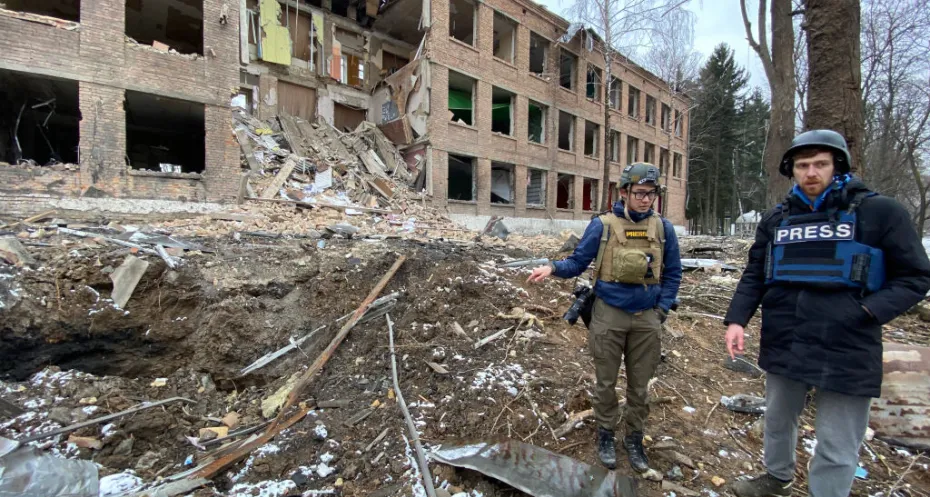
Belarus
Belarus has one of the most oppressive media climates in the world, ranking 157th in the RSF World Press Freedom Index. After the rigged presidential elections in 2020 that evoked mass protests, the flagrant violations of law and human rights, and the move towards further autocracy have not stopped. This included the detention of dozens of journalists, media managers and bloggers and the aggressive suppression of critical voices.
Restrictive media landscape
With nearly all independent media being banned, websites blocked and/or declared as “extremist”, which in turn makes following or sharing them punishable by law, the Belarusian media landscape is one of the most restrictive in the world. The foreign-owned media continuously face significant barriers to receiving accreditation from the Belarusian authorities, which limits the possibility to get information out of the country even more.
Authorities engage in hate speech against political opponents and independent media, spreading both local and Kremlin propaganda, a trend that has intensified since Russia's full scale invasion of Ukraine in 2022.
In the past few years, the country's autocratic leader Alexander Lukashenko signed laws further restricting media freedoms, including the ability for the Ministry of Information to shut down media without court approval. It also extends the right to block and censor websites to local prosecutors. The changes in the definition of “extremism” have led to the over-applying of this term to media and journalists or bloggers.
Safety
The main source of danger for media professionals in Belarus are the authorities, the police and the courts. It is highly common for journalists to be placed in prison for days, months or even years on trumped up charges. At the beginning of 2024, 34 media professionals in Belarus remained behind bars, with prison terms reaching up to 14 years.
Our work
Free Press Unlimited works with European Radio for Belarus (Euroradio), an independent media organisation. With the support of Free Press Unlimited, Euroradio experimented with video and podcast production, social media marketing, and audience analysis and implemented AI strategies in their work. The events of 2020 deeply affected them, but in spite of that they were able to grow their platforms and increase their impact during the increasingly difficult and repressive environment. They have also played a huge role in distributing the news from Belarus across borders with the help of various partners.
After the 2020 elections and full scale invasion of Ukraine in 2022, many journalists had to flee the country, and later Ukraine, for their own safety. Free Press Unlimited has assisted them with their relocation and set up a media hub in Poland where a number of these journalists can work from exile and still provide their audience with reliable information.
We also engage with independent content producers and media professionals inviting them to share their skills and knowledge with regional and international partners.


